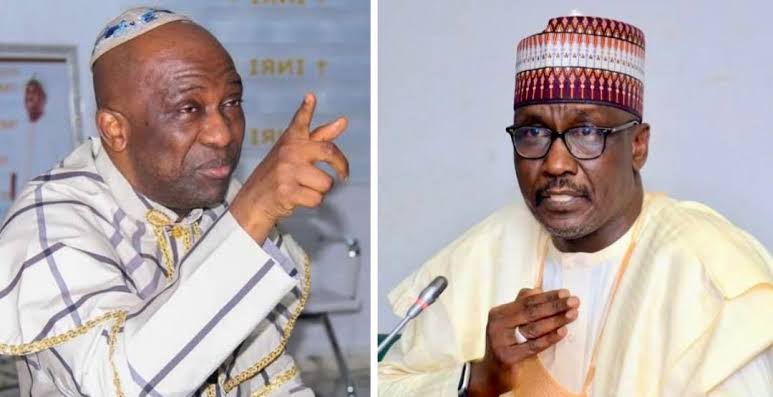Months ago, Primate Elijah Ayodele, the leader of the INRI Evangelical Spiritual Church, made a bold proclamation that sent ripples through Nigeria’s oil sector. He warned President Bola Tinubu that if Mele Kyari, then Group CEO of the Nigerian National Petroleum Company Limited (NNPCL), was not removed, the country’s oil industry would continue to deteriorate, leading to unrest that could threaten Tinubu’s administration.
In his statement, the cleric emphasized:
“One of the most important things President Tinubu must do is sack the NNPCL GMD. If possible, he should be sacked before the end of this month. Otherwise, another major protest is coming, one that could cripple the economy for 120 hours. If Tinubu ignores this, he will put himself in a difficult position.”
This prophecy did not sit well with Mele Kyari’s allies. They swiftly moved to counter the narrative, launching a wave of media attacks against Primate Ayodele. Articles and statements were released, accusing the prophet of working with oil cabals and falsely claiming that many of his past prophecies had failed. Some even went as far as warning Ayodele to stop mentioning Kyari’s name in his prophecies.
The Prophecy vs. the Resistance
Rather than back down, Primate Ayodele stood his ground, maintaining that his call for Kyari’s removal was not based on personal bias but on divine revelation. He continued to warn the government about the consequences of keeping Kyari in office, insisting that corruption and inefficiency within the NNPCL could spark nationwide protests.
Meanwhile, Kyari’s supporters remained defiant, boasting that the President would never listen to Ayodele. They touted Kyari’s so-called achievements, despite widespread discontent over the state of the oil sector. Nigeria had been grappling with fuel scarcity, subsidy challenges, and allegations of financial mismanagement within the NNPCL.
As tensions rose, the battle between prophecy and power played out in the public eye. On one side, a prophet who claimed to speak for God; on the other, a government-backed oil chief with deep connections in the industry.
The Fall of Mele Kyari
Fast forward to today: President Tinubu has sacked Mele Kyari, along with the entire NNPCL board, appointing replacements without hesitation. The move came as a shock to Kyari’s camp, which had dismissed Ayodele’s warnings as mere grandstanding.
This sudden turn of events raises the question: Who had the last laugh?
For months, Kyari’s allies ridiculed Ayodele, believing that his words held no weight. But now, the prophecy has come to pass, leaving them scrambling for answers. While Ayodele continues to make predictions as a prominent prophetic voice, Kyari faces an uncertain future, one that could involve further scrutiny over his tenure at the NNPCL.
Lessons from the Clash
The saga between Primate Ayodele and Mele Kyari serves as a reminder of the unpredictable nature of power and prophecy. History has shown that leaders who ignore warnings, whether divine or strategic, often face consequences. Kyari’s case is no different.
For President Tinubu, this decision could mark a turning point in how he handles Nigeria’s energy crisis. For Primate Ayodele, it reaffirms his position as one of the country’s most controversial but accurate prophets.
And for Mele Kyari? The fall from power is a harsh reality, one that proves, once again, that in the battle of foresight and authority, he who laughs last, truly laughs best.









